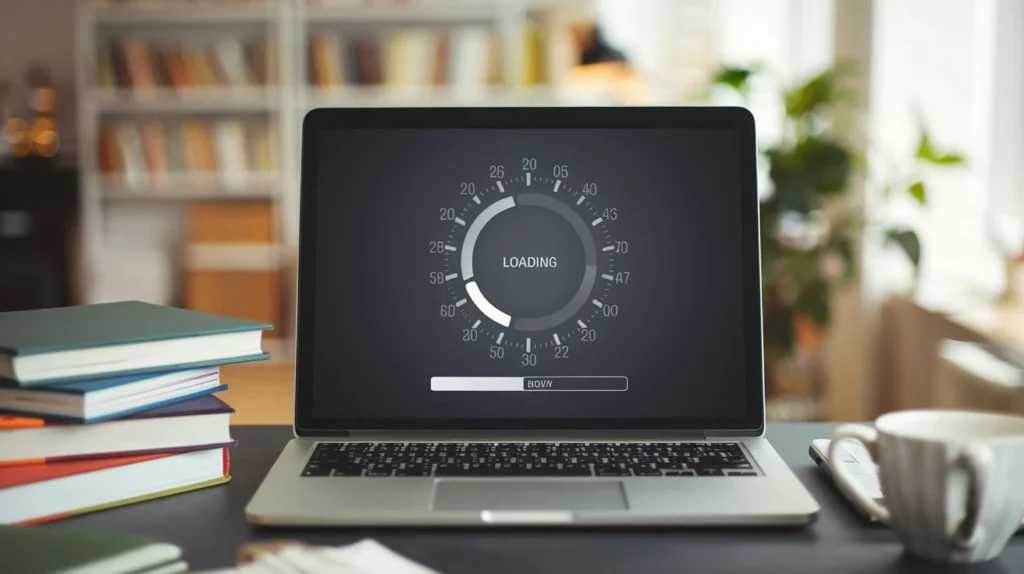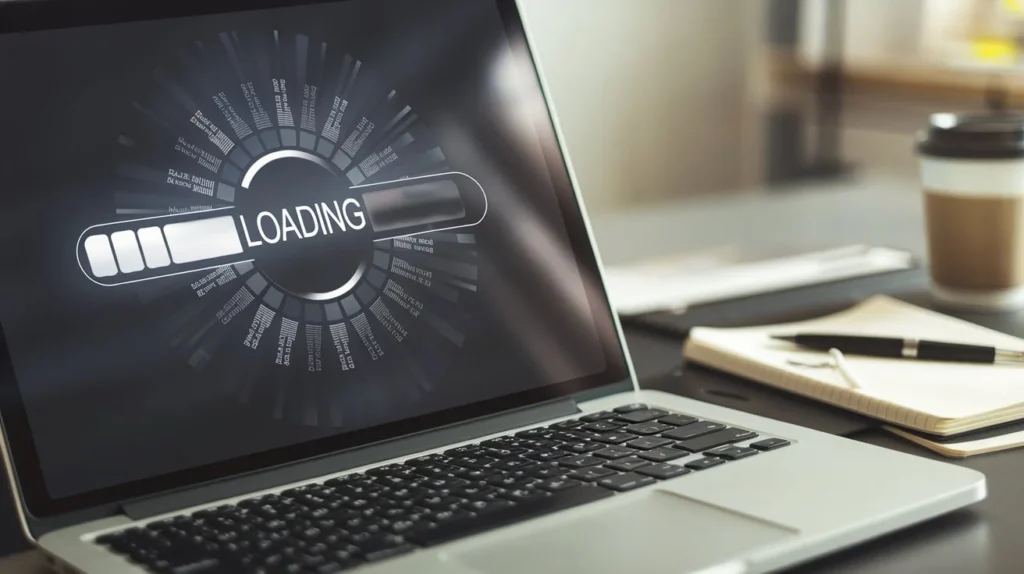Nothing is as disappointing as a slow running laptop. It has a negative impact on your efficiency and time. The reasons causing this can be many Since activity in many organizations is highly socialized, finding specific causes can be very difficult. Always you have one question in mind “why Is my laptop so slow”. This article will discover why your laptop runs slow and the ways to handle it.
Why Does My Laptop Run Slow? 10 Possible Causes
Too Many Background Programs
What do you get when your laptop is processing many applications at one time? These can be programs that run sneakily in the background and you will barely know they are there. This ultimately results into slow performance.
To rectify this, look at your Task Manager or Activity Monitor. The programs you do not require, shut them. The another is the options which related to startup programs, disable the unnecessary ones as well.
Low Storage Space

Laptop slows down if your storage space is limited. It occurs whenever your hdd or ssd disk space is nearly exhausted of free space. It is observed that for optimality, your system require some free space.
Eliminate unessential files and programs from your computer and other data storage devices. It is also possible to also clear space by uploading your files to the cloud storage or an external drive.
Outdated Hardware
Bench top CPUs may not perform well with current uses. Some of the items that the computer has for instance RAM, CPU, and hard drives become out of date. This results to a slow moving laptop consequently.
You should consider increasing your RAM or changing the type of memory used as an SSD. These modifications are capable of enhancing this rate to a great extent.
Too Many Browser Tabs
As we all know a lot of tabs opened in browsers are quite greedy when it comes to memory usage. This slows down your system.
Close unused tabs. To save your tabs without having them open, try using some extensions such as “OneTab”. Daily browser cache has to be cleared for better browsing speed.
Virus or Malware
Most of the time, malware can cause your laptop to run slowly. It consumes your system resources and terminates sequences.
Make sure you have an effective antivirus software in your PC. Menu 3: Sweep your laptop clean and safe Perform a scan from time to time.
Outdated Operating System
If a computer is being operated without having the most up-to-date operating system performance is likely to suffer. They can also contain bug fixes; enhancements make the systems perform faster.
Check for updates regularly. Check that all your drivers and your operating system is updated on your laptop.
Overheating
Laptops become slow when they are hot. Internal parts are sensitive to heat.
If possible wipe the vents and fans to enhance the air circulation in the family home. Do not place your laptop on such sensitive surfaces as beds or couches. Late evening or night can be hot, drink a lot of juice during the day then use a cooling pad if you need it.
Fragmented Hard Drive
In the older kind of storage devices known as hard disk drives (HDDs), there is fragmentation. It slows down data retrieval.
Perform disk cleanup to get your files better arranged on your computer. Defragmenting your computer is not necessary if you are using an SSD.
Too Many Installed Programs
Running many programs on your system can cause some form of congestion. There are programs that may be running in the background, causing a slow down.
Remove applications you do not use anymore such as unwanted applications found in the control panel. Never let unauthorized programs to run on your laptop.
Faulty or Old Battery
A poor battery resource also significantly affect performance. Certain notebooks reduce performance when the battery is depleted or nonstandard, by deliberately limiting CPU usage.
If the battery is old then replace it. If the battery charge does not last long, one should use the laptop that is condition is charged.
Corrupted Files
Damaged system files which are already exist in the system will cause a performance issue. These files interfere with the proper working of your laptop.
Sometimes they can be run from built-in tools such as the Windows’ System File Checker (SFC). To repair disk errors, on a Mac simply select Disk Utility.
Heavy Applications
More resources are needed for some applications. If the laptop does not satisfy the said criteria, it will slow down.
Please read the recommendation relating to system requirements of the software you are currently using. It is unadvisable to run any extreme applications in laptops that are least capable.
Tips on how to avoid your laptops from getting slow.

- Update Regularly
It is important to always have the latest version of your operating system version, appropriate drivers and software. Updates patch up compatibility problems and resolve hitches that were being encountered in the strategy. - Clean Your Laptop
Cleaning is also important and at this point, one should make sure that a laptop is clean from dust. Cleaning saves it from getting HOT and also to increase efficiency of the system. - Monitor Resource Usage
When installed on a computer, check how the system resources are being utilized. There are applications, such as Task Manager, that can tell you which processes are the heaviest. - To make a computer only have the most important programs you should:
Do not install software which is not required in the system. Minimize reliance on those programs that you seldom used in the accomplishment of your tasks. - Perform Regular Maintenance
You should use disk cleanup and defragmentation utilities periodically. Always ensure that the antivirus installed is updated and routinely sweep the system. - Avoid Multitasking
This is another good reason why you should not keep many programs open at the same instance. They do not overload your system and hence they enhance performance.
Should You Replace or Upgrade?
If, after applying all the fixes to your laptop you find that it is still slow then it may be time to get a new one. Consider these factors:
Age of the Laptop: If so, it may not run today’s demanding software adequately.
Upgrade Options: Make sure you don’t have the option to upgrade some of the key parts such as RAM and/or the storage.
Cost of Repair vs. Replacement: This is especially so when it is cheaper to buy a new laptop than to fix one or even replace a part of it.
Conclusion
An unresponsive computer is definitely a problem but a solveable one nonetheless. To help you deal with the subject area, follow the tips provided in this guide to help identify and solve the problem. Proper maintenance and only a few improvements can do a great deal. Six ways to keep your laptop in tip-top shape all the time to help it run as smoothly as possible.
Frequent Asked Questions
How can I make my laptop faster without upgrading hardware?
You can improve performance by cleaning up temporary files, disabling unnecessary startup programs, and limiting background tasks. Updating your operating system and using lightweight software also helps.
Why does my laptop overheat and slow down?
Overheating happens due to dust in vents, blocked airflow, or faulty cooling systems. It affects performance by throttling the CPU. Clean your laptop, ensure proper ventilation, and use a cooling pad to resolve this issue.
Is upgrading to an SSD worth it?
Yes, upgrading to an SSD significantly boosts performance. It’s faster than traditional hard drives, reduces boot time, and improves overall speed.






